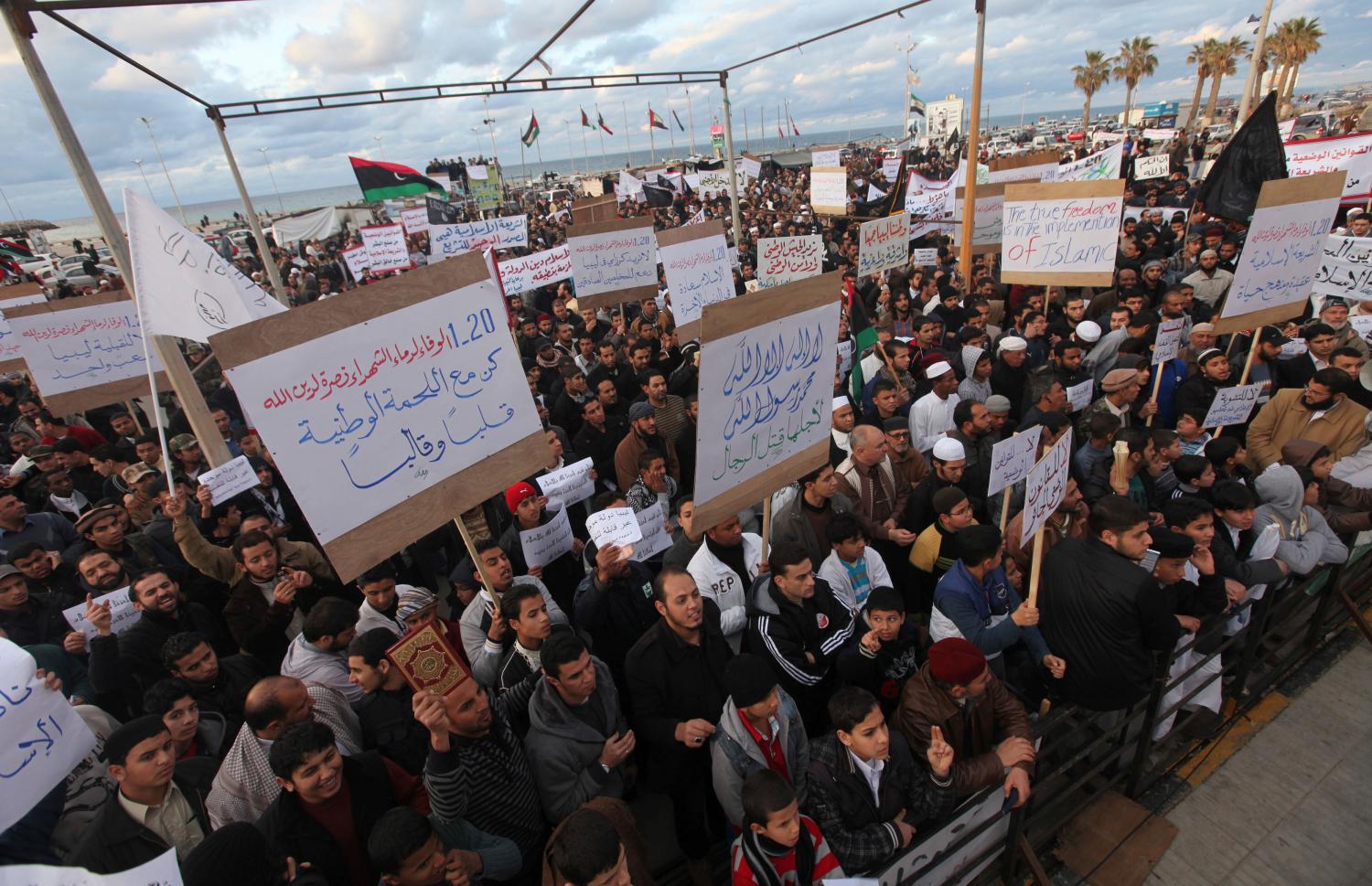Content from the Brookings Doha Center is now archived. In September 2021, after 14 years of impactful partnership, Brookings and the Brookings Doha Center announced that they were ending their affiliation. The Brookings Doha Center is now the Middle East Council on Global Affairs, a separate public policy institution based in Qatar.
Islamists played a decisive role in the Libyan revolution against Colonel Muammar al-Qadhafi. The extent of their influence in the new Libya has sparked concerns in the international community. Two days after the storming of Qadhafi’s headquarters in Bab al-Aziziyya, U.S. Secretary of State Hillary Clinton called on the National Transitional Council (NTC) to take “a firm stand against violent extremism” – an apparent reference to Islamist fighters.
The project of state-building and democratization in Libya is beset by a range of factors, including lack of pre-existing institutions, weak security arrangements, and the political inexperience and ideological rigidity of many of the actors concerned. The spread of arms, decentralization of Islamist militias, and the presence of Al Qaeda in the Islamic Maghreb (AQIM) are all further destabilizing elements. Libya’s Islamists find themselves at the nexus of these challenges. Their role needs to be unpacked and better understood. The policy briefing is divided into three parts. The first section identifies the main Islamist forces in Libya and briefly overviews their backgrounds. The second part attempts to understand the salient issues facing Libyan Islamists and the effect they have on Islamist political behavior. The final section concludes with policy implications for the international community.
The Brookings Institution is committed to quality, independence, and impact.
We are supported by a diverse array of funders. In line with our values and policies, each Brookings publication represents the sole views of its author(s).



